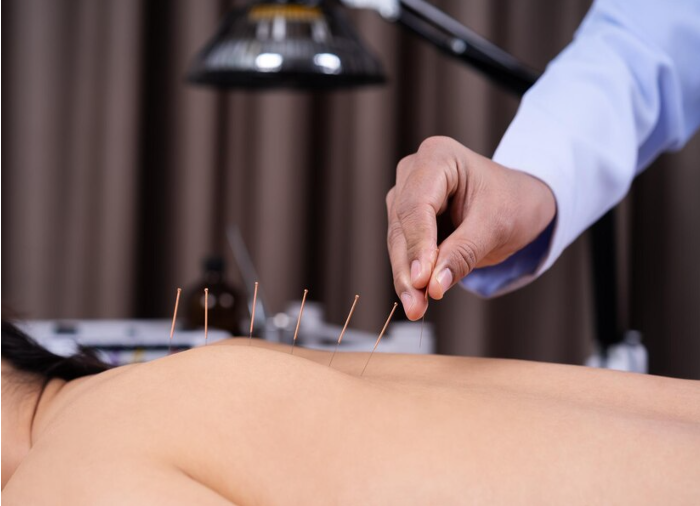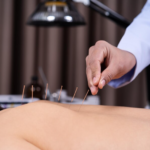Acupuncture is a traditional healing technique that began in China more than 3,000 years ago. It works by inserting thin needles into targeted points on the body to enhance overall health. Initially, it was developed as part of traditional Chinese medicine. Over time, this practice spread across Asia and eventually to the rest of the world.
Today, acupuncture enjoys growing popularity in modern wellness practices. Many people seek it as a natural alternative for pain relief and stress management. Furthermore, scientific research increasingly supports its effectiveness, leading to greater acceptance among healthcare providers. As a result, acupuncture has found its place alongside other complementary therapies.
Understanding Acupuncture
Acupuncture is a form of therapy that focuses on stimulating specific points in the body. These points are known as acupuncture points, and they correspond to various health benefits. Practitioners believe that stimulating these points can help restore balance and promote healing.
The origin of acupuncture lies in ancient China, where it began as a holistic approach to health. Practitioners believed in the flow of energy, or “Qi,” through pathways called meridians. When this energy becomes blocked or imbalanced, health issues can occur. Acupuncture aims to clear these blockages, allowing energy to flow freely.
During a treatment session, practitioners use fine, sterile needles that are very, very thin. The insertion of these needles may cause slight discomfort, but it is generally not painful. Patients often report sensations ranging from a light prick to a warm or tingling feeling. Most individuals find the experience relaxing and rejuvenating.
In summary, acupuncture combines ancient wisdom with modern wellness. Its focus on specific points and the sensations experienced during treatment highlights its unique approach to health.
The Holistic Approach of Acupuncture
Holistic therapy treats the individual as a whole. It considers the physical, emotional, and spiritual aspects of health. Rather than focusing solely on symptoms, it aims to identify underlying causes of illness.
To illustrate this approach, consider a tree. The leaves may show signs of disease, but the roots often hold the real issue. Treating only the leaves will not restore the tree’s health. Instead, addressing the roots allows the entire tree to thrive again. Similarly, acupuncture seeks to identify and treat the root causes of health problems.
Acupuncture also emphasizes the mind-body connection. Emotional disturbances can lead to physical ailments and vice versa. By balancing both aspects, acupuncture promotes overall wellness. This interconnectedness is significant for achieving lasting health.
The Science Behind Acupuncture
Acupuncture stimulates the body’s natural healing processes. When needles are inserted, they create micro-injuries. This prompts the body to activate its healing response. As a result, the nervous system responds to these stimuli.
Endorphins play a crucial role in this process. These natural chemicals relieve pain and promote feelings of well-being. When acupuncture needles are in place, the body releases endorphins, similar to the effects of medication.
Furthermore, acupuncture alters how the brain processes pain signals. It distracts the brain from pain by engaging different nervous system pathways. This mechanism can help patients feel relief from chronic pain and discomfort.
Physiological Benefits of Acupuncture
Acupuncture positively impacts circulation. The needles increase blood flow, supplying more oxygen to muscles and organs. Improved circulation speeds up recovery and enhances overall health.
Additionally, acupuncture reduces inflammation and regulates hormone levels. This effect can help alleviate various conditions, including chronic pain and hormonal imbalances.
Moreover, acupuncture benefits the immune and digestive systems. By stimulating specific points, it supports immune function and promotes healthy digestion. Patients often report improved overall wellness after treatment.
Conditions Treated by Acupuncture
Acupuncture effectively treats a variety of conditions. It is particularly well-known for managing pain, such as back pain, neck pain, and headaches. Many individuals also use it to address mental health issues, including anxiety and depression.
Furthermore, acupuncture assists with digestive problems and can support reproductive health. It is suitable for people of all ages, including children and pregnant women. This versatility makes acupuncture a valuable option for various demographics.
Mental Health and Acupuncture
Acupuncture plays a significant role in managing mental health. It helps alleviate symptoms of anxiety and depression. The treatment promotes relaxation, allowing individuals to cope with stress more effectively.
Neurotransmitters, such as serotonin and dopamine, also influence mental health. Acupuncture regulates these chemicals, improving mood and emotional balance.
Interestingly, acupuncture can produce effects similar to meditation. Both practices promote relaxation and stress relief. This connection highlights acupuncture’s potential for enhancing mental well-being.
Safety and Side Effects
Acupuncture has a strong safety profile. It is a natural treatment that poses minimal risks when performed by a qualified practitioner. Most side effects are rare and mild.
Some patients may experience light bruising, dizziness, or fatigue after treatment. However, many people feel revitalized and refreshed following their sessions. Overall, acupuncture is a safe option for many individuals seeking relief.
Conclusion
In summary, acupuncture offers holistic benefits for both the body and mind. It addresses underlying issues while promoting overall well-being. Many individuals can explore acupuncture as part of their wellness journey.
I encourage readers to share personal experiences with acupuncture. Questions and comments are welcome, as they can foster a deeper understanding of this practice.
Contact Us
For those interested in acupuncture, consider consulting a qualified acupuncturist. They can provide personalized advice tailored to your needs. Share your experiences or thoughts on acupuncture in the comments below!


